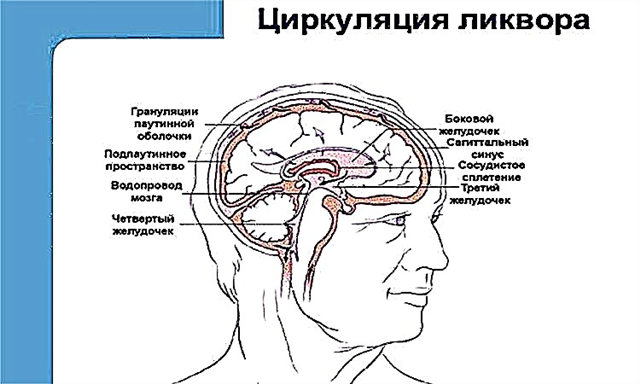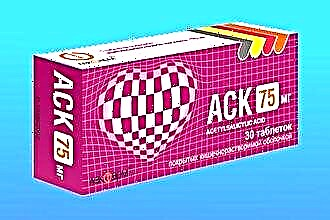Compress is a medical bandage that belongs to the means of distracting (pull-back) therapy. Warming applications promote reflex expansion of blood vessels in the affected tissues, which leads to an acceleration of blood circulation and lymph drainage. Using an alcohol compress for angina, you can quickly eliminate inflammation, swelling and discomfort in the throat.
Angina (tonsillitis) is a disease in which there is inflammation of lymphoid accumulations, i.e. palatine tonsils. Physiotherapeutic methods are used to restore tissue trophism and drainage function of organs. Local therapy of an infectious disease accelerates the regression of pathological processes in the airways, which leads to an increase in tissue reactivity and recovery.
Mechanism of action
 Is it possible to do a compress for angina and why? Physiotherapy treatment is only an auxiliary method of therapy for ENT pathology. Local heating of tissues accelerates blood circulation in the ciliated epithelium, which has a beneficial effect on metabolic and regenerative processes.
Is it possible to do a compress for angina and why? Physiotherapy treatment is only an auxiliary method of therapy for ENT pathology. Local heating of tissues accelerates blood circulation in the ciliated epithelium, which has a beneficial effect on metabolic and regenerative processes.
For the treatment of tonsillitis, it is more advisable to use moist warming compresses, which is associated with their anti-inflammatory, wound healing and anti-edema effect. Under the influence of heat, a reflex expansion of blood capillaries is observed, as a result of which the outflow of intercellular fluid from the affected tissues intensifies. This helps to reduce swelling and inflammation in lymphadenoid formations, which accelerates the processes of self-cleaning of paired organs from purulent contents, detritus and pathogens.
The pronounced therapeutic properties of warming applications include:
- relief of pain in the throat;
- resorption of hypertrophied tissues;
- an increase in the number of neutrophils in the lesions;
- acceleration of regeneration processes in the ciliated epithelium;
- reduction of swelling of lymphadenoid formations;
- removal of toxic substances from lesions.
It is impossible to resort to thermotherapy with the development of purulent processes in the ENT organs - this may be fraught with the intensification of pathological processes.
Tonsillitis in 90% of cases occurs due to the development of bacteria - streptococci, pneumococci, staphylococci, meningococci, etc. To prevent their further reproduction, treatment should be started when the first signs of the disease appear. However, it should be noted that warming up the throat is strictly prohibited in case of hyperthermia and subfebrile fever. The presence of these symptoms signals an acute course of pathology, in which it is impossible to use warming medical dressings.
Features of setting a compress
 How to apply a compress to the throat with sore throat? The effectiveness of physiotherapeutic treatment depends on the correct setting of the compress, the composition of the warming medicine, the duration and frequency of the treatment procedures. Warming cotton-gauze dressings are recommended to be used either at the initial stages of the development of catarrhal processes, or at the stage of resolution of inflammation.
How to apply a compress to the throat with sore throat? The effectiveness of physiotherapeutic treatment depends on the correct setting of the compress, the composition of the warming medicine, the duration and frequency of the treatment procedures. Warming cotton-gauze dressings are recommended to be used either at the initial stages of the development of catarrhal processes, or at the stage of resolution of inflammation.
In the process of applying a warming compress, the following recommendations should be taken into account:
- as the basis for the bandage, you can use gauze folded in several layers, or cotton fabric;
- a compress for angina must be impregnated with medicinal solutions that have a warming and anti-inflammatory effect;
- to prevent heat exchange with the medium, cover the wet dressing with polyethylene or kraft paper;
- insulate the compress with a layer of cotton wool, a woolen scarf, flannel cloth or a terry towel;
- if necessary, the bandage is fixed with a bandage or scarf.
The duration of the procedure depends on which components are included in the warming preparation. Alcohol and semi-alcohol compresses are put on for no more than 2-3 hours and only after pretreating the skin with vegetable oil or petroleum jelly.
You can not warm up the throat with thyrotoxicosis, thyroid hyperplasia and hypothyroidism.
Contraindications
You can not put compresses on the throat with sore throat without first consulting a specialist. Self-medication can cause generalization of purulent processes, which is fraught with the development of local and systemic complications. Late passage of local therapy leads to the development of lymphadenitis, bacterial otitis media, meningitis, rheumatoid arthritis, myocarditis, etc.
Direct contraindications for the use of withdrawal therapy include:
- subfebrile and febrile fever;
- acute course of pathology;
- purulent inflammation of lymphadenoid tissues;
- tendency to allergic reactions;
- cardiovascular pathology;
- oncological diseases;
- dermatitis and furunculosis;
- thrombophlebitis and bleeding tendency.
The dressing should be gentle on the throat tissue. The use of concentrated alcohol solutions and mustard plasters can lead to a critical expansion of the blood vessels that feed the brain.
Alcohol applications
Is it possible to do an alcohol compress for tonsillitis? For the preparation of the warming preparation, medical alcohol can be used, but only in a diluted form. To reduce the concentration of alcohol, medicinal decoctions, boiled water, Nitrofural solution, etc. are used.
When applying an alcohol dressing, you should:
- mix medical alcohol with sage broth in a 1: 1 ratio;
- moisten gauze folded in 4 layers in a warm solution;
- apply a damp cloth to your throat;
- cover the gauze bandage with compressor paper and a layer of cotton wool;
- fix the compress with a bandage;
- remove the bandage after 4-5 hours.
During pregnancy, alcohol compresses can withstand no more than 2-3 hours in a row.
To achieve the desired therapeutic results, a compress from a sore throat should be done at least 2-3 times a day with an interval of 2-3 hours. In pediatric therapy, it is more advisable to use semi-alcoholic medical dressings. To prepare a warming solution, medical alcohol is diluted with boiled water or herbal decoction in a ratio of 1: 3.
Applications with aloe
Aloe juice has pronounced antiphlogistic, bactericidal and decongestant properties. It contains essential oil substances, antioxidants, beta-carotene, vitamins, amino acids, anthraglycosides and phytoncides that help destroy streptococci, dysentery bacillus, meningococci and other gram-positive bacteria. A natural immunostimulant accelerates the resorption of infiltrates in the mucous membranes of the throat, which accelerates their epithelization.
How to make a medicated throat bandage with aloe juice to relieve sore throat symptoms?
- mix 1 tbsp. l. aloe juice with 2 tbsp. melted honey and rubbing alcohol;
- grind a few aloe leaves in a blender and mix the pasty mass with 2 tbsp. vegetable oil;
- in equal proportions, mix aloe juice with calendula tincture and mineral water.
For therapeutic purposes, it is best to use the tree-like aloe, which is associated with the high concentration of nutrients in the plant.
Curd applications
 Homemade cottage cheese is an effective anti-inflammatory agent, which contains more than 20 useful amino acids, vitamins and trace elements. It rarely causes allergic reactions, so it can be used to treat a sore throat in children over 6 months of age.You can enhance the warming effect of the product with calendula tincture, vodka or powdered mustard. However, before using a local irritant, you need to consult a pediatrician.
Homemade cottage cheese is an effective anti-inflammatory agent, which contains more than 20 useful amino acids, vitamins and trace elements. It rarely causes allergic reactions, so it can be used to treat a sore throat in children over 6 months of age.You can enhance the warming effect of the product with calendula tincture, vodka or powdered mustard. However, before using a local irritant, you need to consult a pediatrician.
How to make curd compresses for angina?
- chop 250 g of homemade cottage cheese in a blender;
- add 2 grated onions to the mass;
- pour 2 tbsp into the product. melted honey;
- put the warm curd mass on cheesecloth;
- apply a compress to your throat and warm with a woolen scarf;
- remove the dressing after 2-3 hours.
Warming compresses are often included in the conservative treatment of infectious diseases characterized by inflammation of the mucous membranes of the throat and lymphoid tissues. However, it should be borne in mind that warming the throat can aggravate the course of the disease in the event of the development of follicular sore throat. That is why, before using physiotherapy, you should make sure that the diagnosis is correct.
Pharmacy preparations
In the local therapy of ENT diseases, pharmaceutical preparations of antiseptic and antimicrobial action can be used. Their active components quickly penetrate deep into the tissues, which accelerates the process of destroying the bacterial flora in the foci of inflammation. The most effective medicinal solutions include:
- "Dimexide" is a drug with anti-inflammatory and local anesthetic action, the components of which are active against most gram-positive bacteria; eliminates catarrhal processes in lymphadenoid formations and accelerates their regeneration;
- "Furacilin" is an antimicrobial antiseptic that accelerates the regression of purulent-inflammatory processes in the throat; it is used at the acute stage of development of catarrhal processes in the mucous membranes of the oropharynx and lymphadenoid accumulations.
Pharmaceutical antiseptics do not have a local irritating effect, which allows them to be used at the stage of acute inflammation of the ENT organs.
Antiseptics should be used with caution in patients with renal failure.



